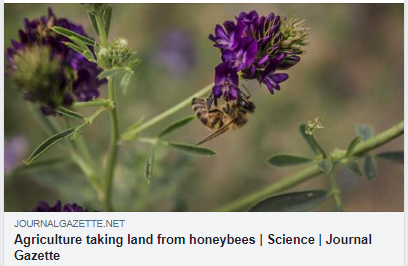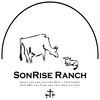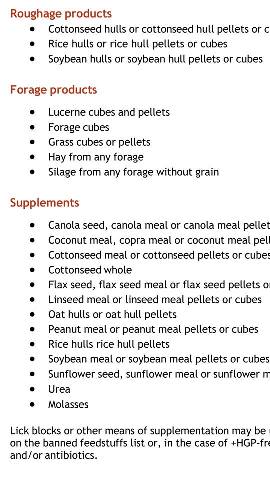
Nary a day goes by, at one of our Farmer's Markets wherein we don't meet
a healthy handful of folks that have commited fully to this method of nourishing their bodies. Having an icy cold display of our Ranch Direct products attracts these new devotees at the cyclic rate.
What is shocking, for us, is to find out where these folks are getting all their protein and fat, to fuel this new way of eating. The answers abound - Costco, Ralphs, Sprouts, Butcher Box, US Wellness Meats, etc... all factory farm purveyors.
When Keto/Paleo eaters consume large amounts of meat and animal fats from the conventional, industrial, factory farming system it is deeply scaring and harming our ecosystems - bee colonies notwithstanding.
"From 2006 to 2016, more than half the conservation land within a mile of bee colonies was converted into agriculture, usually row crops such as soybeans and corn" - the majority of which was used to fatten cattle in feed lots.
To be sure, Keto/Paleo eating is the most efficient fuel you can consume, but, one must consider the entire impact on the ecosystem.
It is for this reason SonRise Ranch raises animals on pasture, integrated into their natural environment in a holistic approach (meaning we consider the "whole" ecosystem)
"Beef may be labeled as "Grass fed" all the while having been fed Rice Hulls, Peanuts, Wheat and SoyBeans"
You see, the real problem is that "Grass fed" beef has now been reduced to a by-word thanks to the USDA's refusal to enforce its own regulations. After initially wrestling with the definition in 2007, they erroneously concluded that any cattle that "has eaten some grass" is therefore "grass fed" and deregulated the definition in 2016 - opening a floodgate of terrible labeling confusion, wherein Beef may be labeled as "Grass fed" all the while having been fed Rice Hulls, Peanuts, Wheat and SoyBeans. (see photo below)
So the stuff you are buying at the supermarket labeled "Grass fed" is, most likely, anything but Grass fed and that fabolous beef touted as "local" using a fancy Facebook Ad has an 85% chance of being imported from Argentina, Uruguay or Australia. To add insult to injury, the USDA's COOL (Country of Origin Labeling) regulations permit this beef can be labeled as "Product of the USA"
Just a word of caution here - if the meat subscription service you belong to ships 10,000 order a month, its not real Grass fed. It's mass produced meat from a factory system. In like fashion, if the "Local Ranch" your support is backing an 18 wheeler up to a supermarket chain to unload pallets of beef - it too, is mass produced meat from a factory system. Just connect the dots folks!
There is a better way. Find a true local Ranch - put your dollars where it counts. Make a difference. Save some bees.


 RSS Feed
RSS Feed